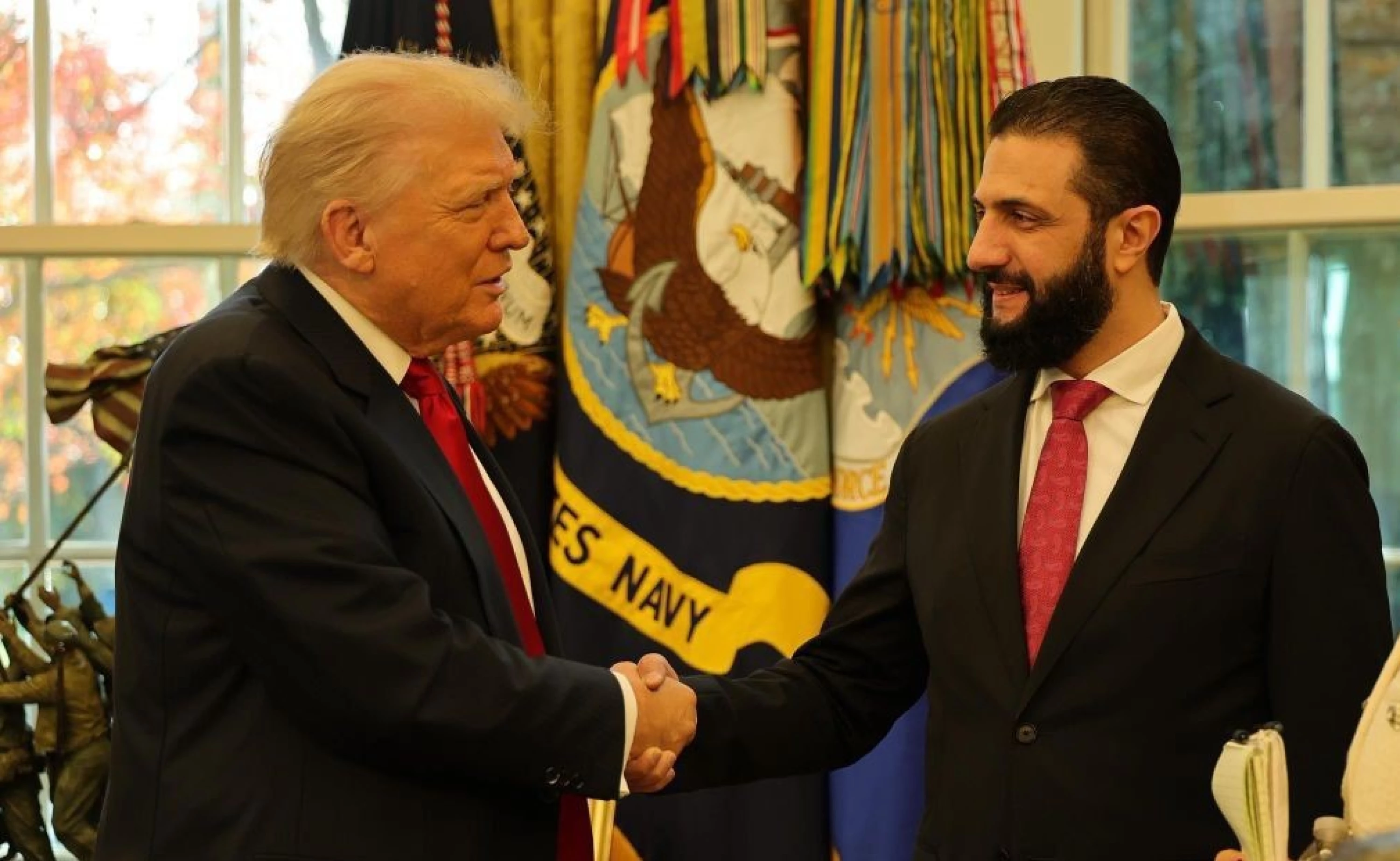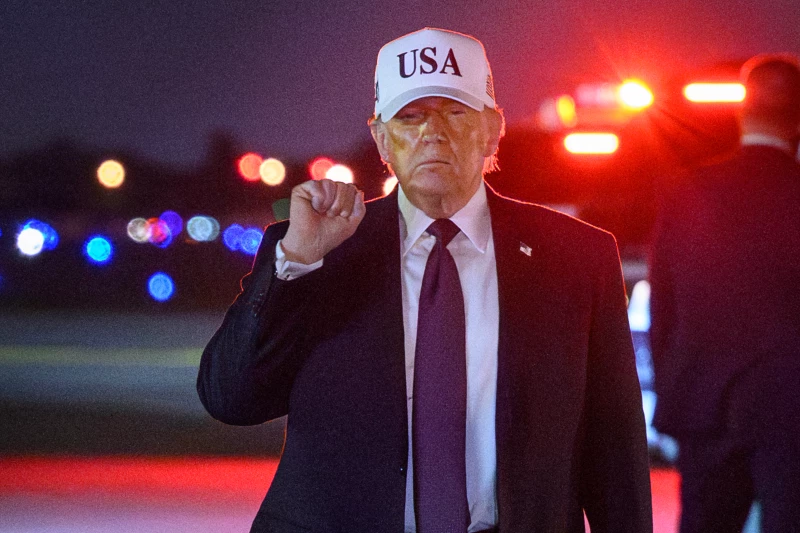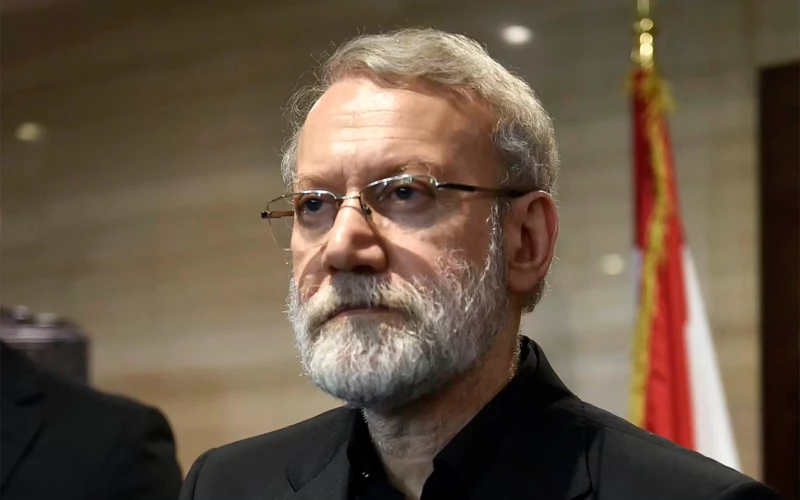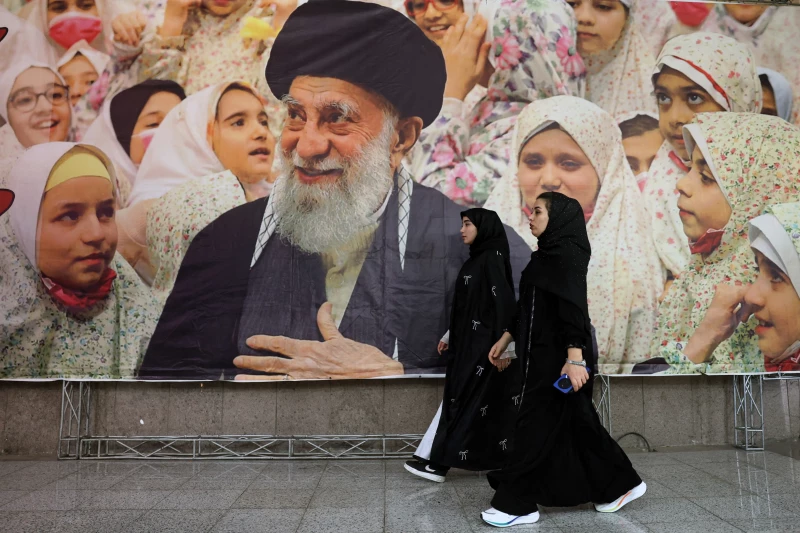ERBIL, Kurdistan Region of Iraq - Syrian President Ahmed al-Sharaa met with US President Donald Trump at the White House on Monday, coming as Washington temporarily suspended key Caesar Act sanctions on Damascus and suggested that Syria will join the US-led coalition to defeat ISIS.
The meeting marked the first time a Syrian leader visited the White House since Syria’s independence in 1946, marking a seminal moment for Sharaa, whose political life has traversed from his origins as an Al-Qaeda fighter in Iraq to the leader of Hay’at Tahrir al-Sham (HTS), which seized power in Damascus after deposing the regime of Bashar al-Assad in December, to his current role as president.
Sharaa entered the White House through a side entrance, avoiding a horde of media waiting outside the West Wing doors, through which foreign dignitaries normally enter on official visits.
Syria's foreign ministry, in a statement, highlighted that the two sides discussed bilateral ties between Washington and Damascus and “ways to strengthen them, in addition to a number of regional and international issues of common interest.”
The meeting in the Oval Office took place in the presence of Syrian Foreign Minister Asaad al-Shaibani and his American counterpart Marco Rubio, as well as US Special Envoy to Syria Thomas Barrack, Vice President JD Vance, and Defense Secretary Pete Hegseth.
The US Department of the Treasury, following the meeting, announced that Washington will temporarily suspend “the imposition of Caesar Act sanctions in part for 180 days” on Damascus as part of its continued commitment to sanctions relief for Syria.
The Caesar Syria Civilian Protection Act of 2019 was a US sanctions system that targeted the Syrian government and those involved in business with Damascus, cutting the country off from the global economy. The law was enacted during the rule of the deposed Baathist regime under Bashar al-Assad.
The Treasury added suspension “halts the imposition of sanctions pursuant to the Caesar Act” except for transactions involving the governments of Russia and Iran and the transfer of “Russian-origin or Iranian-origin goods, technology, software, funds, financing, or services.”
In October, the US Senate passed the 2026 defense programs and policy bill, the National Defense Authorization Act (NDAA), which includes an article calling for the unconditional repeal of the Caesar Act—the system of sanctions imposed on the former Ba'ath regime over accusations of human rights violations.
The meeting came soon after the US State Department removed Sharaa from its terrorism blacklist.
In May, Trump met with Sharaa in Riyadh, one day after Trump announced he had ordered the cessation of all sanctions on Syria “in order to give them a chance at greatness.”
US Foreign Affairs Committee Chairman Brian Mast, in a press statement released Monday, asserted that Syria will join the US-led Global Coalition to Defeat ISIS, saying that his meeting a day earlier with Sharaa included “a long and serious” discussion on “how to build a future for the people of Syria free of war, ISIS, and extremism.”
Speaking ahead of the visit in early November, Shaibani described the trip as “historic,” stressing the importance of lifting sanctions and counterterrorism cooperation against the Islamic State (ISIS), saying that “any effort in this regard requires international support.”



 Facebook
Facebook
 LinkedIn
LinkedIn
 Telegram
Telegram
 X
X


